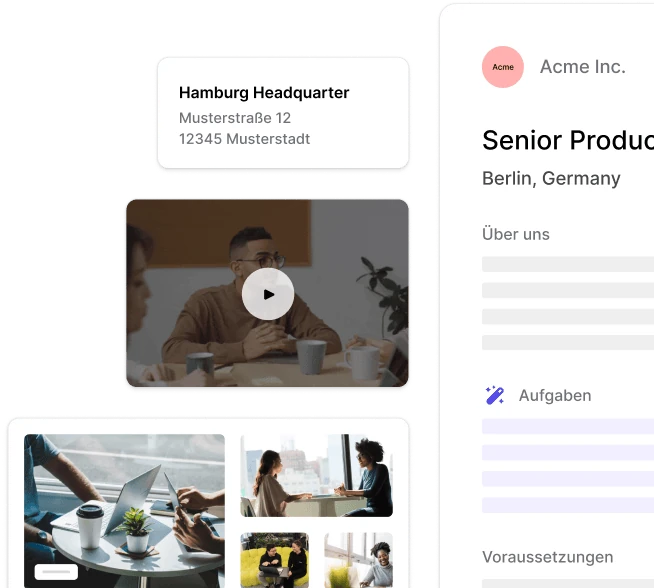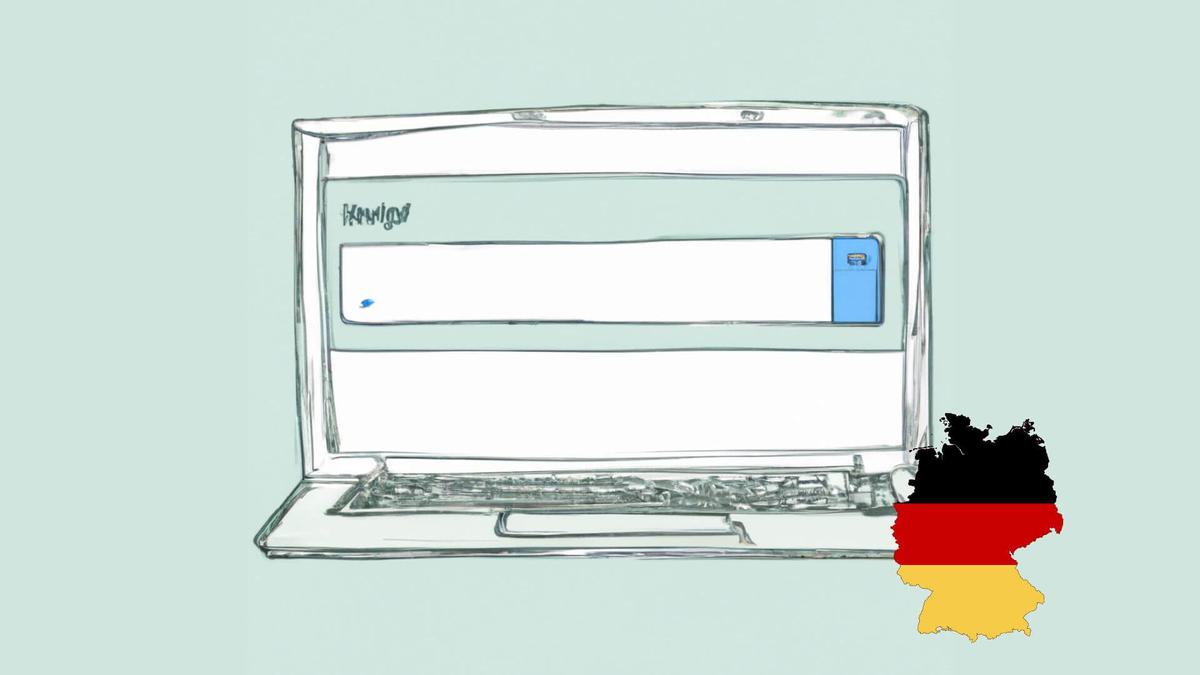Planning enjoyable team building activities for introverts
Organising team building activities is notoriously difficult for so many different reasons. One of the biggest challenges is finding an activity or event that everyone (or at least the vast majority of the team) will enjoy.
Table of contents
Maybe you’re planning an event to make your team building and communication skills stronger. Or perhaps you’re simply looking for everyone to bond and get to know each other now that people are more comfortable being in person. Either way, it can be a challenge.
At JOIN, we’re proud to have completely different and diverse people throughout the company and within different departments and teams. One of the things we do best here is fostering and maintaining great relationships with each other, both professionally and personally, regardless of a person’s personality or background.
Therefore, we thought we could pass on our wisdom and share what we’ve learned from organising team building activities that try to make everyone feel equally comfortable. Whether extrovert or introvert, these team building activities are not just inclusive, but they’re a lot of fun as well.
Below we’ll discuss:
- What being an introvert means
- What introverts dislike
- How to make your team events more enjoyable
- Event ideas
- Gathering feedback
What does being an introvert mean?
An introvert is a person who has the qualities of a personality type known as introversion. They prefer to be introspective and reflective within themselves instead of focusing on stimuli from external sources. Usually introverts are much more comfortable spending time with one or two people at a time, as opposed to larger groups or crowds of people.
Having said that, a lot of people believe that introverts don’t enjoy being outgoing or talkative, which is a myth. Introverts are great at both speaking and especially listening. When they’re with the right group of people, they will shine just as bright as the, maybe more obvious, extroverts.
What introverts dislike
To properly understand how to make these events more enjoyable for introverted people, we firstly need to understand what’s undesirable.
Whether it’s a formal team event or a more relaxed company celebration, work events are usually always centred around communication, networking, and interpersonal connections. It’s not that introverted people dislike talking—quite the opposite in the right situations—but they might not feel themselves in large groups of unfamiliar people.
Another example of a situation that introverts may want to avoid is an event with no planning and no itinerary, it could induce anxiety for the introverted. It might sound like a nice surprise to the organisers, but for a lot of the attendees this will be a bad start.
How to make your team building activities more enjoyable
So, how can we make these deep thinking, reflective personalities not only more comfortable at team events, but also help them get the best out of it?
After all, team events are all about growth, so nobody should be more worried about speaking up than having fun.

Work in small groups
It might sound like a great idea for the more extroverted team members to all get together in the same place, catch up and have some improvised fun team building. But, we know now that introverted people don’t particularly enjoy large groups, especially as an open discussion.
Working in smaller groups of up to five will give introverts the space to feel comfortable enough to participate to their full potential.
Dynamic groups
As well as having smaller groups of people work together, another important point to consider is how dynamic those groups are. Introverted people firstly tend to like to interact with just a few people at a time, but you’ll get big bonus points if you also allow them to choose the people that they’ll work with for the event.
If the point of the event is to get people to interact better throughout the company or within different teams, then you could ask your team to get into pairs. Then put those pairs together with people from different departments.
This will give the introverts a type of ‘anchor’, someone that is familiar and comfortable. This will make it much easier for them to open up with ideas and conversation compared to if they were with even a small group of people that they had never met before.
Provide recharge time
Extroverts, as a rule, are energised by being around lots of different people. Introverts are the opposite, instead of gaining energy from social activities, it’s more likely to drain them.
Providing an area or room for some downtime would be beneficial, especially if your work event is a retreat that’s taking place over several days.
You can make sure there’s comfortable seating in the break room with plants and refreshments, and make sure you make it clear that it’s available for chill-out time, or quiet time for anyone, any time they might need it. Your introverted friends will greatly appreciate the gesture.
Leverage your social power
Unlike our talkative, spontaneous extroverted friends, introverted people are much more likely to think before they speak.
According to the author Susan Cain who wrote the popular book ‘Quiet’, introverts often feel like they can express themselves a lot better through writing, or art, instead of speaking aloud, especially if that means speaking in front of groups.
To ensure that the introverted people from your team are included fairly, you should send out an announcement a few days before the event takes place. You can do this either in a company-wide chat, on a messaging app like Slack, or through social media.
Ask the team to give their thoughts about something you will be discussing during the event. For example, let’s say you want to get everybody’s thoughts on how the HR team could improve the company-wide presentations:
“Hi team! Very much looking forward to our team event next week! During the day we’ll be discussing a few different things and we’d like to get your thoughts on how we could improve the company-wide presentations. Please add your thoughts to this thread, or message me directly. Don’t worry—nobody has to speak up in front of the group—we’ll do all the talking!”
This gives everyone an opportunity to give their opinion about something in a way that makes them most comfortable. They can message the leader privately or put their thoughts together with everyone else’s. This is great for the leadership team as they’ll get unfiltered opinions.
If you have a lot of topics to discuss, an anonymous form is a great tool to gather thoughts for further discussion and allows the quieter people to voice their opinions in a safe space.
Interaction and engagement surprises
Surprises—either you love them or you hate them. Introverts, unsurprisingly, generally don’t enjoy them as much as the more extroverted people.
When planning your event, you might think about springing a spontaneous improvisation on the group. It might sound like an innocent, fun game to some people, but springing an interactive surprise on the more introverted can induce anxiety—the opposite of what your event should be achieving.
If you’d really like to improvise some scenarios, then you should stick to small groups and add it to your event itinerary, so everyone can at least mentally prepare for the activity.
Provide a detailed event plan
Talking of event itineraries, a detailed plan is the best way to go for our quieter colleagues—the more information you can provide, the better.
Not only does this include events that will take place throughout the day, but you can also include the structure of each activity. If the team will work in groups or individually, what the aims of the exercise are, and if they’ll be presenting to a group.
If your team event is taking place somewhere other than the office, you should provide a lot of information about the location. Is it difficult to find? What is the closest station? What floor are they going to? All of this smaller information adds up and allows people to completely prepare and come relaxed to the event.
Reflective activities
We learnt above that introverts are often great at being reflective, and they put a lot of thought into things before discussing.
A good idea is to prepare some articles, or maybe a synopsis of a book that you’d like to discuss. Allow everyone enough time to read the material and your introverted team members will probably come to the discussion with deep, well-thought-out ideas and opinions.
Event ideas
Now you know what introverted people are like, and what would make them more comfortable over the event timeline, we can look at some examples of team events that suit these personality types down to the ground.
Escape rooms – These have become increasingly popular for team events in recent years. The fun, engaging puzzles in escape rooms are perfect for improving communication skills and team work for cross-functional teams.
A simple lunch – It might be something that your team is routinely doing, but setting up a lunch with people from a few different teams is the perfect environment to improve communication. Keep it short, and encourage the group to leave work at the office and get to know each other on a personal level.
Movie nights – This could happen in person, or if needed, remotely. To make it a little more focused on team building activities, you can ask the team to discuss the movie afterwards. This is a nice reflective, relaxed team event that we think everyone can get on board with.
Board game evenings – For a little more engagement than a movie night, try a board game evening. Try to find something that most people already know, and mix up the teams a little bit. Remember, with an activity that can get loud and interactive to allow the team to pick their own teams to feel more comfortable.
Guided walks and tours – A lot of small and medium-sized businesses in cities have people working in the organisation coming from all over the world. One nice idea is to organise some guided walks and tours in the city you’re based in. If you’re organising a retreat, then it’s also a nice idea to get to know the area that you’re visiting.
Cooking class – During the pandemic, cooking classes became increasingly popular with organisations and their team events because they can be done online. If it’s safe to do so, you could also invite a chef to your office, or go to a kitchen to learn how to cook together. Because the team can do this independently, but together, it acts like a safe space for the introverted.
If you love team events as much as we do, you can find more in depth information on the importance of teamwork within our dedicated article on the importance of team building.
Gathering feedback
Feedback is really important to us here at JOIN, we believe that the more open discussions you have about something, the better it becomes, and the faster it evolves.
Once the team event has come and gone you should set up a feedback round to get people’s opinions and improve for next time. After all, everyone should feel more upbeat and comfortable after a team event.
For these feedback rounds, it’s better to get anonymous feedback, so setting up a form or survey will be best. This gives everyone the opportunity to voice their real opinions and it gives your events team the information they need to make the event even cooler the next time.
To sum up
We’ve learnt a lot about personality types and how different people can be. We know that a certain event might sound amazing to an extrovert, but bring up anxiety and worry for an introvert. The right balance is essential for the harmony of your team.
Remember:
- Always work in small groups and allow people to pick their own teams.
- Provide recharge time or a lounge area, especially during longer team events or retreats.
- Try not to include any interactive surprises.
- Always create and share a detailed event plan in advance.
- And, include more reflective activities.
- Always have a great time!
Hannah Squire
Hannah was a Content Specialist at JOIN. During her time with us, she mostly wrote about improving company culture and building stronger teams.


